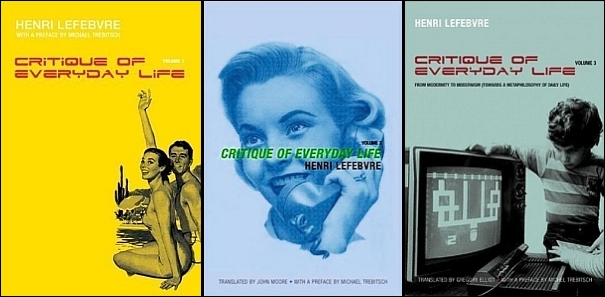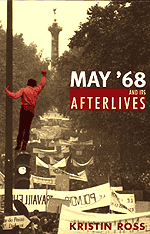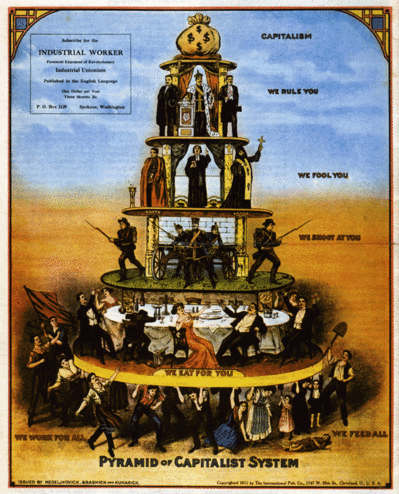
Bernardo Bertolucci's highly stylized film about May '68, The Dreamers (2003), is a vivid illustration of the narrow, exclusively Parisian image of the events that has to be overturned if we are to see things in their proper historical light. Bertolucci depicts May '68 as a student protest, which is how it began, but its significance to history derives from the fact that it soon became a nationwide protest involving more than 9 million striking workers. The effects of the strikes are made apparent to us in the film in the form of mounds of uncollected garbage mouldering in stairwells and on street corners, but the striking workers themselves are never shown. Moreover, Bertolucci makes it seem the student protests began in the privileged cloisters of the Latin Quarter, and not, as was actually the case, in the functionalist towers of the new universities in the outlying immigrant slum areas of Nanterre and Vincennes, where students were provided 'with a direct "lived" lesson in uneven development.' According to the great Marxist philosopher Henri Lefebvre, it was this daily 'experience' of the callousness of the state that radicalized the students and provided the catalyst for their connection to workers' movements. Secondly, through the vehicle of its twin brother and sister protagonists Isabelle (Eva Green) and Theo (Louis Garrel), both in their late teens or early twenties and still living at home with their relatively well-to-do parents, it depicts the students who took part in May '68 as naive, self-absorbed and perverted. Cocooned in their own fantasy world concocted from fragments of movies and books, Isabelle and Theo are a postmodern version of Ulrich and Agathe. They meet an American exchange student, Matthew (Michael Pitt), and invite him to join them. When their parents go away, they are able to indulge their whims uninhibitedly and the scene is set for a cliched romp through the three staples of 1960s counterculture, namely, sex, drugs, and rock 'n' roll. They take bubble baths together and get stoned on hash; Matthew and Isabelle make love on the kitchen floor while Theo fries an egg and looks on with Brechtian disinterest; they drink papa's fine wine straight from the bottle and debate movies and politics long into the night as though nothing else mattered. They ignore the world outside.

Mathhew soon upsets their idyllic universe by accusing them both of being unwordly: Isabelle because she's never been out on a real 'date' and Theo because of his starry-eyed romanticization of the Chinese Red Guards. It all begins when Isabelle demands that he shave his pubic hair as a sign of love. He refuses because the demand is in his view nothing but a silly game, an infantilizing gesture that proves their disconnection from the reality of what is going on around them. He tells them both 'there's something going on out there, I can feel it,' but neither Isabelle nor Theo seem to care. Their political awakening comes soon enough though in the form of a brick thrown through their apartment window. The brick literally shatters their world, but also save their lives too. Awakening after another of their orgiastic episodes, Isabelle finds a cheque written by her parents and realizes they must have been in the apartment and therefore witnessed their dishabille state and perhaps guessed at their decadent behavior -- the three of them are naked, sleeping side by side in a tent Isabelle erected in the living room. Mortally ashamed, Isabelle decides to kill herself and Theo and Matthew as well, so she switches on the gas and lays down between the two boys and readies herself for death. It is at this point that the window is broken. The intrusion of the street into their self-enclosed fantasy world is thus presented as a life-saving event. The brick breaks the spell of self-indulgence they've all been under and suddenly both Isabelle and Theo realize something is going on outside and that it does concern them, does interest them, and is more important than their fantasy world. The three of them rush first to the balcony to witness the events below and then to the street to join in. But here the happy trio split up because only Isabelle and Theo are willing to take part. Mathhew, a self-proclaimed pacifist, turns his back on them. Matthew recoils in horror when he sees Theo with a Molotov cocktail in his hands and refuses to join them when they rush hand in hand towards the fray. Bertolucci's last act then is to make May '68 an exclusively French affair, but also wrongheaded and needlessly violent.

Kristin Ross's account of May '68 takes us in precisely the opposite direction to Bertolucci. She is anxious that we see that May '68 was not just a student protest, and that those involved were anything but naive (in the sense of being unaware of history) and perhaps most importantly that it was part of a longer chain of events that stretched far beyond Paris. To begin with, Ross argues for an enlargement of the timeframe in which the events are considered, not just beyond the month of May itself, which as she shows (and Bertolucci's film exemplifies) restricts the events to a limited series of goings-on at the Sorbonne, but back two decades to the start of the Algerian War. This, in turn, enables her to argue that May '68 was not a great cultural reform, a push toward modernisation, or the dawning sun of a new individualism. It was above all not a revolt on the part of the sociological category "youth". It was rather the revolt of a broad cross-section of workers and students of all ages who had grown up with and witnessed the sickening brutality of the Gaullist regime's failed attempt to deny Algeria its independence. 'Algeria defined a fracture in French society, in its identity, by creating a break between the official "humanist" discourse of that society and French practices occurring in Algeria and occasionally within France as well.' It was impossible to reconcile the ideal of a benevolent welfare state espoused by France's leaders with the truncheon-wielding reality of the hegemonic state, except perhaps in oedipal terms by casting President de Gaulle in the role of the father and relegating the protesters to the rank of children. Anti-Oedipus is of course directed against this pseudo-psychoanalytic account of the events and indeed Deleuze and Guattari argue that it was precisely the example of Algeria that makes it clear that politics cannot be reduced to an oedipal struggle. 'It is strange', they write, 'that we had to wait for the dreams of the colonised peoples in order to see that, on the vertices of the pseudo triangle, mommy was dancing with the missionary, daddy was being fucked by the tax collector, while the self was being beaten by the white man.' (AO, 105-9/114)

What Fanon's work showed us, Deleuze and Guattari go on to suggest, is that every subject is directly coupled to elements of their:
historical situation -- the soldier, the cop, the occupier, the collaborator, the radical, the resister, the boss, the boss's wife -- who constantly break all triangulations, and who prevent the entire situation from falling back on the familial complex and becoming internalised in it. (AO, 107/116)

As Belden Fields writes, the Algerian War was crucial stimulus for the radicalization of French students in the 1960s because it delegitimized the structures of the state. 'The educational system, for instance, came to be viewed as a conduit funneling young people into military bureaucracies, whether public or private, to earn a living as a supporting cog in a system of repressive privilege'. Jean-Paul Belmondo, 'the doomed anti-hero' of Jean-Luc Goddard's path-breaking film of 1960, A bout de souffle [Breathless], is usually taken as the 'screen representative of that young generation of Frenchmen condemned to serve, suffer, and even die in Algeria'. This perceived lack of control over their own destiny, even among the relatively privileged classes to which the majority of students actually belonged, coupled with the oppressive archaism of the educational system itself, and indeed the state structure as a whole, generated among radicalized youth a powerful sense of empathy with all victims of the state. The students saw themselves as being in solidarity with factory workers, despite the fact that their destiny was to be the managers who would one day have to 'manage' these selfsame workers. In other words, in spite of the fact that their class interests were different, the students and the workers were nonetheless able to find a point of common interest in their dispute with the state. The usual divide and conquer tactics the state relies on to stratify the population and ensure that precisely this type of connection between strata doesn't occur failed spectacularly. It failed because the state was unable, at least in the first instance, to present itself as something other than a huge, oppressive monolithic edifice determined to stamp out dissent with an iron fist. Unfortunately, the French Communist Party, still a very strong and widely supported institution, was tarnished by its 'pragmatic response to the war -- the party line, that the war should be ended by negotiated settlement, was strictly enforced, with the result that it too came to be seen as ossified and antiquated and of little relevance to the needs of the present generation. Deleuze and Guattari clearly shared this view; their frequent anti-reformist remarks should be seen as directed at the French Communist Party.
Ross's second move is to argue for an enlargement of the geographical framework in which the events are considered, not just beyond the Latin Quarter to the outer suburbs of Paris, but beyond France altogether to still another of its former colonies, namely Vietnam, which having rid itself of its French masters in the 1950s was then in the process of expelling the American pretenders:
In its battle with the United States, with the worldwide political and cultural domination the United States had exerted since the end of World War II, Vietnam made possible a merging of the themes of anti-imperialism and anti-capitalism ...
In fact, the events themselves were sparked by an incident -- a window of the American Express building on rue Scribe in Paris was broken -- that occurred as part of a student protest against the war in Veitnam on 20 March 1968. The irruption of student protest at Nanterre two days later was in part provoked by the heavy-handedness of the police response to the anti-Vietnam march. The students at Nantarre rallied themselves under the banner of 'Mouvement du 22 mars', deliberately recalling Castro's 'July 26th Movement' commemorating the attack on Moncada fortress and start of the insurrection against Batista. 'Vietnam thus both launched the action in the streets as well as brought under one umbrella a number of groups ... as well as previously unaffiliated militants working together. For the protesters, students and workers alike, Vietnam made manifest processes that were thought to be merely latent in the West. For one thing, it revealed both the inherent violence of the postmodern capitalist state and the lengths to which it is prepared to go in order to preserve its power. It demonstrated a willingness on the part of the powerful to use violence against the powerless to defend the status quo. Vietnam also revealed the vulnerability of the super state and its susceptibility to a 'revolution from below'. Sartre, for one, was convinced that the true origin of May '68 was Vietnam because the example of Vietnamese guerrillas winning a war against a vastly superior force, albeit at the cost of an enormous loss of life, extended the domain of the possible for Western intellectuals who otherwise thought of themselves as powerless in the face of the state.
More concretely, French workers whose livelihoods were threatened by a process we know today as globalization, the process whereby local markets are forcibly opened to global competitors, saw themselves as victims of American imperialism too. Deleuze and Guattari were keenly aware of the high cost the structural adjustments (to use the purposefully dry language of economists):
If we look at today's [1972] situation, power necessarily has a global or total vision. What I mean is that every form of repression today [repression actuelles], and they are multiple, is easily totalised, systematised from the point of view of power: the racist repression against immigrants, the repression in factories, the repression in schools and teaching, and the repression of youth in general. We mustn't look for the unity of these forms of repression only in reaction to May '68, but more so in a concerted preparation and organisation concerning our immediate future. Capitalism in France is dropping its liberal, paternalistic mask of full employment; it desperately needs a 'reserve' of unemployed workers. It's from this vantage point that unity can be found in the forms of repression I already mentioned; the limitation of immigration, once it's understood we're leaving the hardest and lowest paying jobs to them; the repression in factories, because now it's all about once again giving the French a taste for hard work; the struggle against youth and the repression in schools and teaching, because police repression must be all the more active now that there is less need for young people on the job market. (DI, 210/294)
On this point, Ross argues that the geographical boundary of the events of May needs to be widened to encompass Italy because the political convulsions wrought by the first stages of globalization were in Europe nowhere felt more keenly. The striking Fiat workers' slogan 'Vietnam is in our factories!' made the connection to American imperialism explicit. This is, then, Ross's third move: she argues for a redefinition of the sociological frame in which the events are considered. May '68 would not have been the event it was if the protest action had been confined to either the students or the workers or even the farmers. It was the fact that these groups, as well as many others, found it possible and necessary to link up with each other that resulted in the extraordinary event we know as May '68. But, and this is Ross's main point, none of these groups -- students, workers, farmers, etc. -- can be treated as pre-existing, self-contained, homogeneous entities. As for the encounters between these heterogeneous groups, they obviously cannot be treated in the same way that one might regard the actions of states agreeing by treaty to work together for the sake of a common interest. Ross suggests that the process might better be described as 'cultural contamination' and argues that it 'was encounters with people different from themselves -- and not the glow of shared identity -- that allowed a dream of change to flourish'. Ross's purpose, however, is not to assert the primacy of the individual, or indeed the primacy of differences, two moves which as [Fredric] Jameson has shown in his various critiques of Anglo-American cultural studies lead inexorably to political paralysis. By repudiating both the collective and the same under the utterly misconceived banner of 'anti-totalization', cultural studies has for all practical intents and purposes divested itself of two of the most basic prerequisites for politics, namely the potential for a common action and the identification of a common aim. Well aware of the pitfalls of valorizing the individual at the expense of the collective, the different at the expense of the same, Ross argues for an approach to the sociological dimension of May '68 that is perfectly attuned to Deleuze and Guattari's work.
Buchanan, Ian. Deleuze and Guattari's Anti-Oedipus. NY: Continuum, 2008: 13-19.
No comments:
Post a Comment